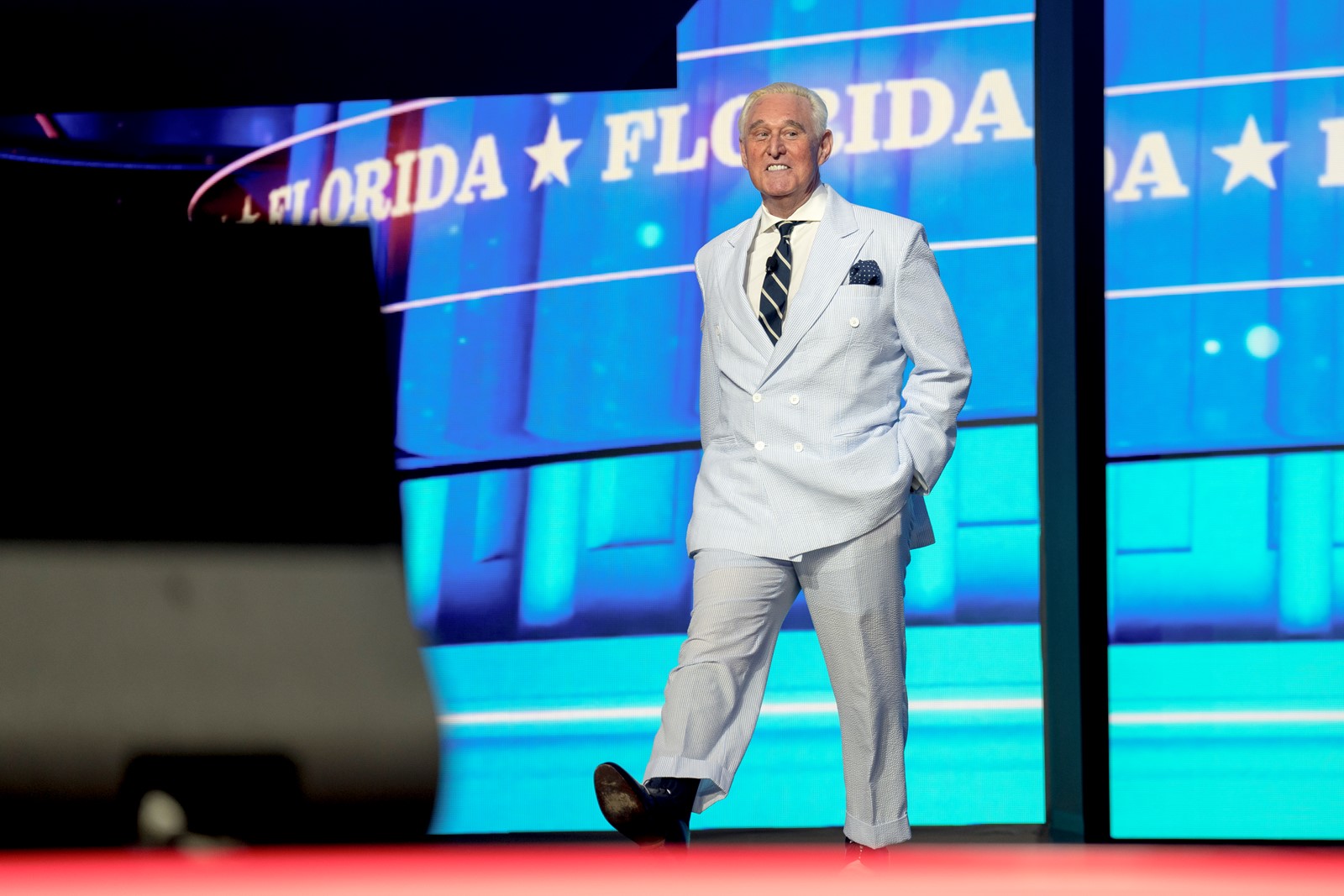
The Justice Department’s in-house watchdog found no evidence of political interference in the reduction of a prison sentence proposed for longtime Trump ally Roger Stone in 2020, attributing the stunning reversal to “ineffectual” leadership, according to a report released Wednesday.
The report concluded a four-year investigation into the decision by Attorney General William Barr in February 2020 to reduce Stone’s proposed sentence to about three years, after initially recommending seven to nine. The episode incited accusations of political interference and prompted four prosecutors in the case to resign.
The decision to seek a lighter sentence was announced after President Donald Trump sharply criticized the harsher sentence initially proposed by career prosecutors after Stone was convicted in 2019 for lying to Congress during its investigation into Trump’s connections to Russia. He denounced the sentencing recommendation as a “miscarriage of justice.”
But the inspector general, Michael E. Horowitz, concluded that Barr had argued that the more stringent sentence was unreasonably harsh before Trump expressed those sentiments. Barr was blindsided by a subordinate who had led him to believe the department would request a lesser prison term, Horowitz wrote.
“Barr had articulated his position about the sentencing recommendation both before and shortly after the first sentencing memorandum was filed, and before the president’s tweets,” Horowitz wrote in the 85-page report.
Stone never served any time; Trump commuted his sentence before leaving office.
Barr did not immediately respond to a request for comment. But he has repeatedly denied that his actions were motivated by partisanship or political pressure.
Horowitz said that Barr and other former department officials had declined to be interviewed, and that he had no legal authority to compel their cooperation.
The central player in the saga was Timothy Shea, who had been appointed as the top prosecutor in the department’s Washington office on an interim basis just two weeks before, and seemed “unsure” of what to do after being thrust into the politically charged case, Horowitz wrote.
“We concluded that the sequence of events that resulted in the department’s extraordinary step of filing a second sentencing memorandum was largely due to Shea’s ineffectual leadership,” he wrote.
Investigators “found no evidence” that the department’s leadership or Shea had “engaged in misconduct or violated department policy in connection with the Stone sentencing,” he added.
Shea did not respond to a request for comment.
The Stone case was one of the most significant criminal prosecutions arising from the investigation of Russian interference in the 2016 election by special counsel Robert Mueller.
In November 2019, a jury in Washington convicted Stone of seven felony charges, including lying under oath to a congressional committee and threatening a witness whose testimony would have exposed those lies. The judge presiding in the case said that Stone had hindered a congressional inquiry of national importance because the truth would have embarrassed the president and his 2016 campaign.
In drafting their sentencing memo, prosecutors on the Stone case calculated a recommended range of seven to nine years, based on federal guidelines and other factors related to the case.
There was considerable internal debate about whether that was the proper course, the inspector general found. A supervisor in the U.S. attorney’s office in Washington suggested to prosecutors that the public might view such a steep prison sentence as evidence that they were “a bunch of deep-state liberals who hate” Trump, one of the people involved told Horowitz’s investigators.
“We will get a lot of criticism for it,” the supervisor added, according to the report.
Shea, who had previously served as Barr’s counselor at the department headquarters, had responsibility for making the call and sought advice from a range of people inside the department.
On Feb. 10, 2020, the day the recommendation was scheduled to be filed with the court, he met with Barr on an unrelated matter and raised the issue.
Shea told the attorney general he thought the proposed recommendation seemed too harsh, investigators said.
Barr concurred and both men appear to have agreed that prosecutors should request a sentence below the guidelines.
However, rather than taking that approach — “and despite telling Barr that he believed the guidelines range was unreasonable” — Shea went along with the prosecutors’ original proposal a few hours later, to the chagrin of Barr, who wasted no time in making his displeasure known.
That afternoon, hours before Trump attacked prosecutors and the judge in the case on social media, Barr told his staff that the memo needed to be “fixed.”
A day later, Shea wrote that the Justice Department believed that Stone should be imprisoned but that the term he had requested just 24 hours earlier was excessive.
Shea stated in the filing that “the government ultimately defers to the court as to what the appropriate sentence should be.” The new filing also noted that Stone had no prior criminal record.
Soon after, three of the prosecutors resigned from the Stone team but stayed in the U.S. attorney’s office. A fourth quit the department altogether. Some of them later said publicly that they believed they were undercut by department leaders to protect Trump’s longtime ally.
Horowitz began his investigation later that year, he said.


 PREVIOUS ARTICLE
PREVIOUS ARTICLE
